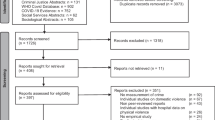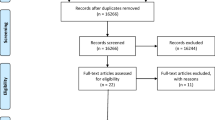Abstract
This is a review essay of Lagasnerie, Judge and Punish and Fassin, The Will to Punish. It explores the way that these two books challenge conventional thinking about the relationship between crime and punishment.
Similar content being viewed by others
Notes
OW Holmes, The Common Law (1881) (London: Macmillan 1968) p. 37.
With B Western, R McLennan & D Garland, edited by C Kutz (Oxford: Oxford UP, 2018) (henceforth WP).
Stanford: Stanford UP, 2018 (henceforth J&P).
AW Norrie, “Beyond Persecutory Impulse and Humanising Trace. On Didier Fassin’s The Will to Punish” (2019) 13 Crim Law & Phil. 681-8.
Although it is worth noting in passing that the final chapter of Judge and Punish is an impassioned critique of ethnography as a “non-critical and conservative” method, directed particularly at the work of Fassin. See J&P, ch.15.
J&P, pp. 37–8.
J&P, ch.6.
J&P, p. 40.
“The specificity of the state comes from the fact that it constitutes a power that strips its subjects of the possibility of renouncing it.” J&P, p. 41.
J&P, pp. 72–3.
J&P, p. 77.
His argument is that while criminal codes also deal with situations of ‘irresponsibility’ (or non-responsibility), the nature of these defences does not flow from the form of responsibility but from the fact that there exists a prior system of meaning by which we distribute responsibility. See J&P, ch.7.
J&P ch.8 esp. at pp. 82–91 citing P Fauconnet, La Responsabilité (Paris: Alcan, 1920).
J&P, p. 90. See also the discussion of Kelsen at pp. 80–82. See also Fassin, WP, p. 111: “By confronting the individual with his act under the exclusive principle of liability, society absolves itself of its responsibility in the social production and construction of illegalisms”. Cf. S Veitch, Law and Irresponsibility. On the Legitimation of Human Suffering (Oxford: Hart Publishing, 2007).
J&P, p103. Cf. Fassin, WP, ch.3 arguing that there is a similar disavowal of social responsibility in the distribution of punishment.
J&P, p. 115.
“We don’t want to punish someone because he or she is seen as being responsible. Rather, we designate someone as responsible because we want to punish and inflict suffering” (J&P, p. 147 citing F Nietzsche, On the Genealogy of Morality (Cambridge: Cambridge UP, 1994).
J&P, p. 148. cf. N Christie, “Conflicts as Property” (1977) 17 BJ Criminol 1–15.
As represented by the figure of the prosecutor who defends the interests of society (J&P, pp. 143–5).
J&P, p. 148.
J&P, p. 153.
Fassin, WP, p. 81.
J&P, p. 151. E Durkheim, The Division of Labour in Society (New York: Free Press, 1933) ch.2. Cf. Fassin, WP, p. 56 who merely notes that Durkheim’s account is at odds with his genealogy of punishment.
J&P, p. 170 (emphasis in original).
To the point that we might reverse the normal order of our understanding and ask not whether it is the state that is defining punishment, but whether it is punishment that is defining the state.
Fassin, WP, Prologue.
Key works were A von Hirsch, Doing Justice. The Choice of Punishments (New York: Hill & Wang, 1976) and G Fletcher, Rethinking Criminal Law (Boston: Little, Brown Co., 1978).
RA Duff, The Realm of the Criminal Law (Oxford: Oxford UP, 2018) p. 15: “we should not let criminal punishment dominate our discussion of what criminal law is, or ought to be: its other two dimensions [defining offences and trying crimes] have meanings, and can serve significant purposes, that do not depend on punishment.”.
V Chiao, Criminal Law in the Age of the Administrative State (New York: Oxford UP, 2019) ch.4.
Making the Modern Criminal Law. Criminalization and Civil Order (Oxford: Oxford UP, 2016) p. 299. See also ch.1.
R Reiner, Crime. The Mystery of a Common Sense Concept (Cambridge: Polity, 2016).
“Historicising Criminalisation: Conceptual and Empirical Issues” (2009) 72 Mod LR 936–60.
L McNamara et al., “Theorising Criminalisation: The Value of a Modalities Approach” (2018) 7 IJCJ&SD 91–121.
(2018) 7(3) IJCJ&SD Special Issue: Hidden Criminalisation: Punitiveness at the Edges (eds. J Quilter & L McNamara); cf. Z Hoskins, Beyond Punishment. A Normative Account of the Collateral Legal Consequences of Conviction (Oxford: Oxford UP, 2019).
D Garland, “The Rule of Law, Representational Struggles and the Will to Punish” in WP, pp. 154–67.
Ibid p. 163.
Ibid p. 164.
HLA Hart, “Prolegomenon to the Principles of Punishment” in Punishment and Responsibility (Oxford: Clarendon Press, 1968) at pp. 4–5.
Though he does also criticise denunciatory theories for confusing the aims of the criminal law (condemning socially undesirable conduct) with the aims of punishment, ibid pp. 7–8.
Lagasnerie provides some powerful examples of generalisation of wrongs from the particular incidents is used to justify the imposition of harsh punishment, J&P, pp. 161–70.
J&P, pp. 173–6. See e.g. G Becker, “Crime and Punishment: An Economic Approach” (1968) 76 Jnl of Political Economy 169–217.
There are also striking parallels here with both Christie, “Conflicts as Property” and the belief of some legal moralists that there are ‘pre-legal’ wrongs.
Reiner, Crime, pp. 2–4.
Author information
Authors and Affiliations
Corresponding author
Additional information
Publisher's Note
Springer Nature remains neutral with regard to jurisdictional claims in published maps and institutional affiliations.
Rights and permissions
About this article
Cite this article
Farmer, L. Crime and Punishment. Criminal Law, Philosophy 14, 289–298 (2020). https://doi.org/10.1007/s11572-019-09523-7
Published:
Issue Date:
DOI: https://doi.org/10.1007/s11572-019-09523-7




